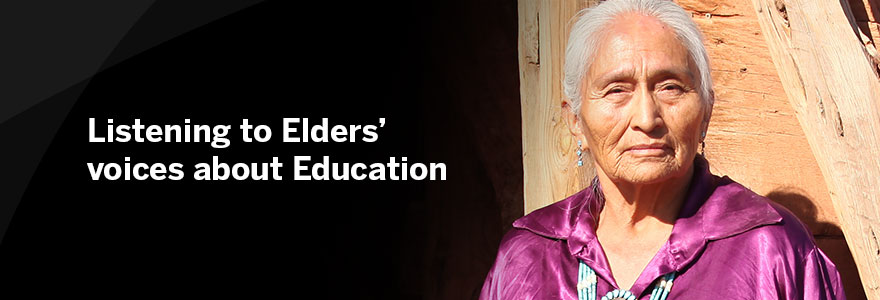
Listening to Knowledge Holders and Elders about their roles in public schools

Professor Erica Neeganagwedgin from the Faculty of Education has been awarded a Social Science and Humanities Research Council Insight Development Grant to speak with Indigenous Elders and Knowledge Holders about their role in public schools.
Neeganagwedgin will look at the role of Elders and Knowledge Holders in the public school systems in Southern Ontario and in the Vancouver area. She added that while some universities have Elders-in-residence, not much is known about Knowledge Holders and Elders in the public school system. Her goal is to discuss the roles that Elders currently play in some schools, and their views about roles which they could play in schools where they are not currently present. Because they bring insight, language and information into the classroom, Neeganagwedgin considers that their knowledge is, and always has been, critical to the identity of Indigenous Peoples and to their survival.
“I think it’s really important that youth are introduced to the teaching of Elders and having Elders in the schools and doing work with school children at a very young age” she said. “They have knowledge that is intergenerational, which has been taught to them, and they are sharing it with the younger generation.”
Neeganagwedgin added that many Indigenous societies around the world view Elders as an important part of pedagogy, curriculum, teaching and learning in schools. She knows first-hand the importance of Elders sharing with and teaching students.
“I feel so passionate about this topic. I’ve seen the difference that it made when I was a youth, and I’ve seen the difference that it has made to other people.”
The study is timely because of the recent publication of the Truth and Reconciliation report and its Calls to Action about Education. Neeganagwedgin is hoping that there’s a shift concerning formal education and ways of learning within schools.
“Reconciliation should not just be a word that’s thrown around. It has to reflect and promote meaningful change within the education system and part of that would be to see the knowledge that Elders bring as important and necessary,” she said.
Having Elders in the classroom also makes schools kinder and better learning spaces, she said.
“I’m hoping this can be transformative education. It’s a different way of looking at education and it’s a more holistic form of education.”

